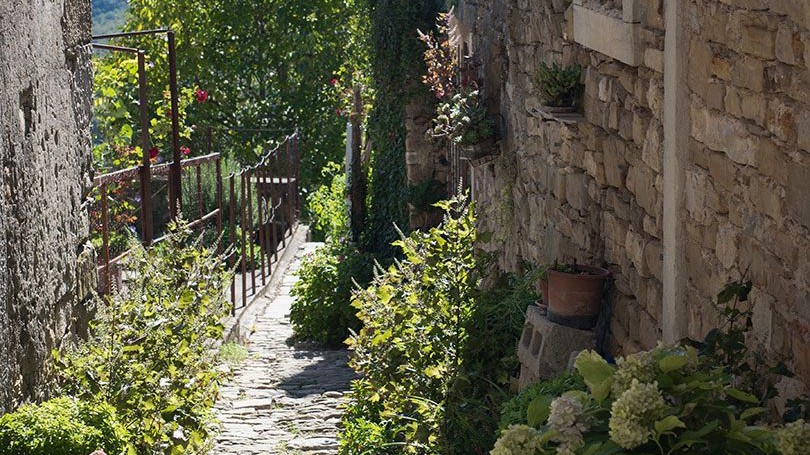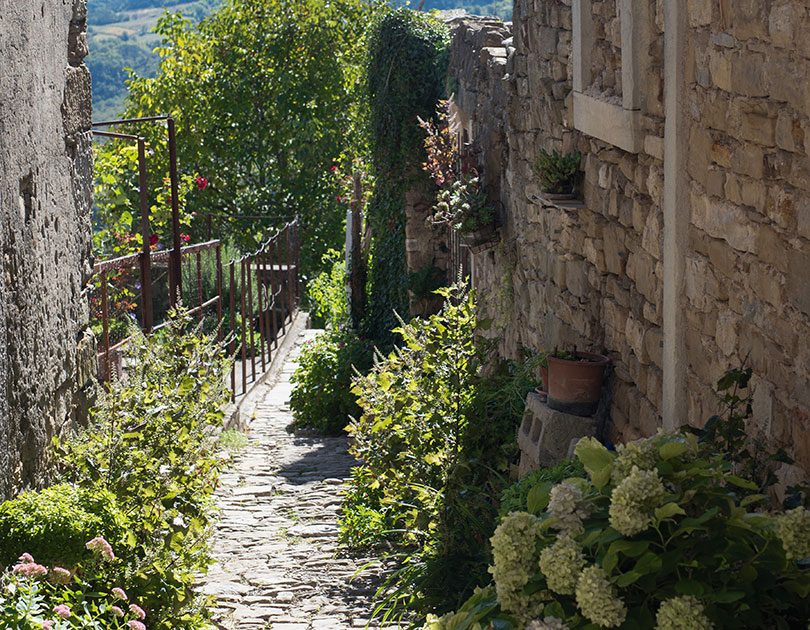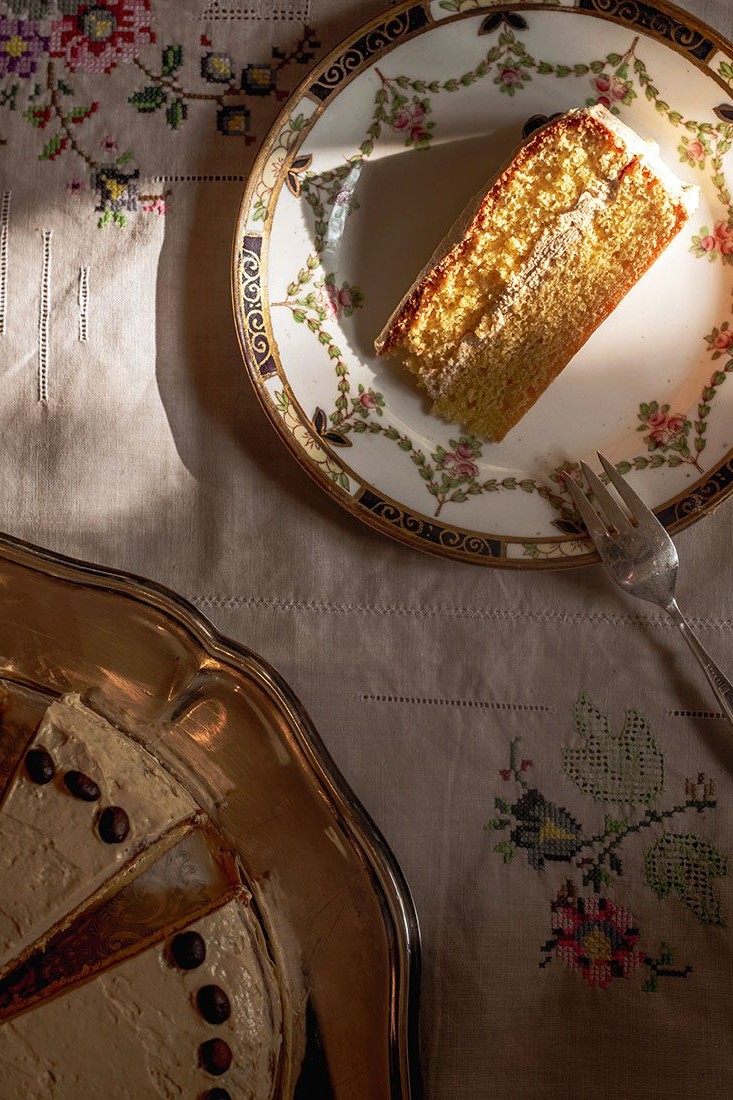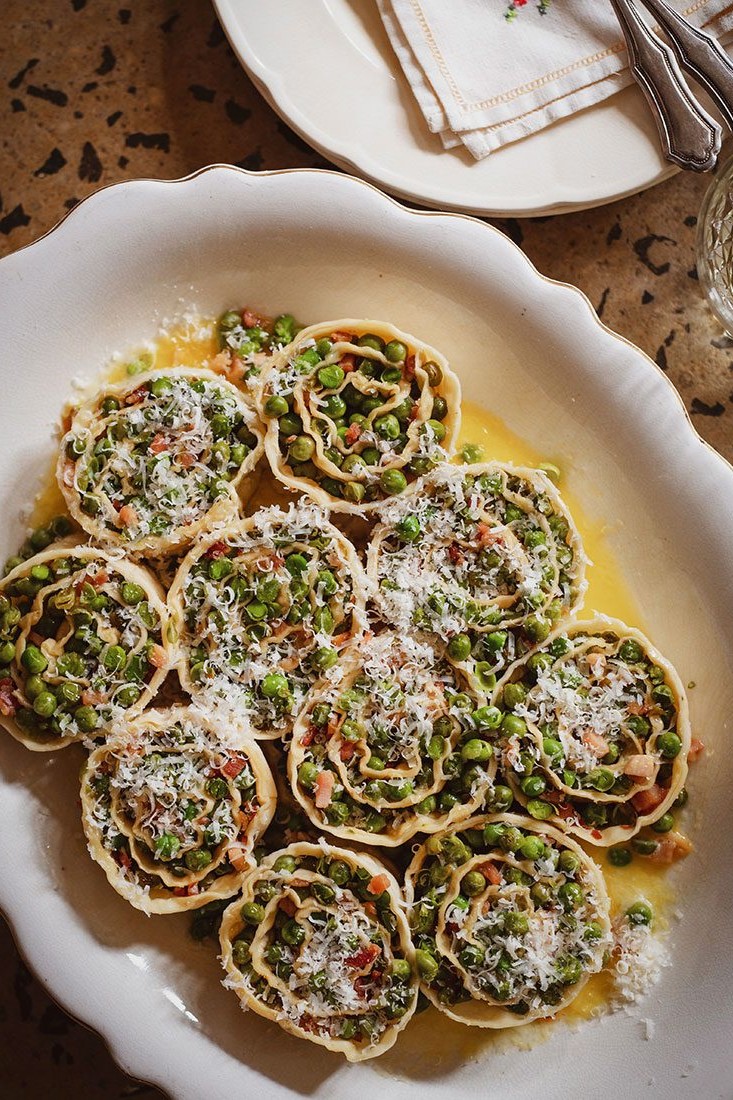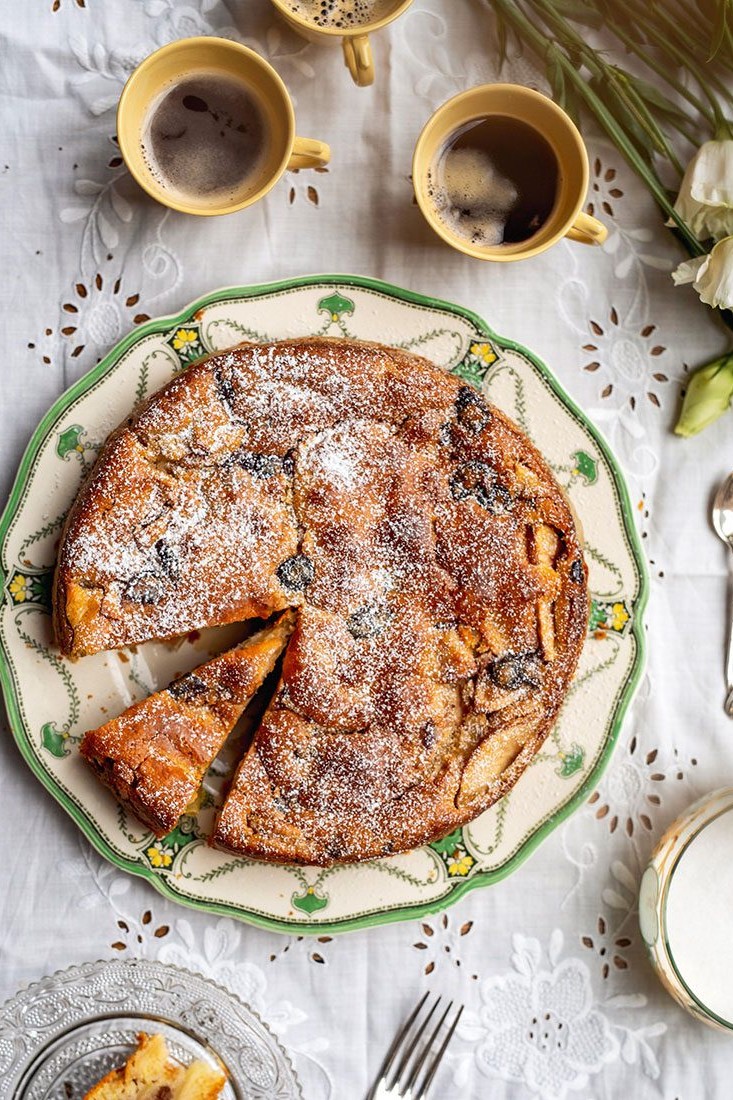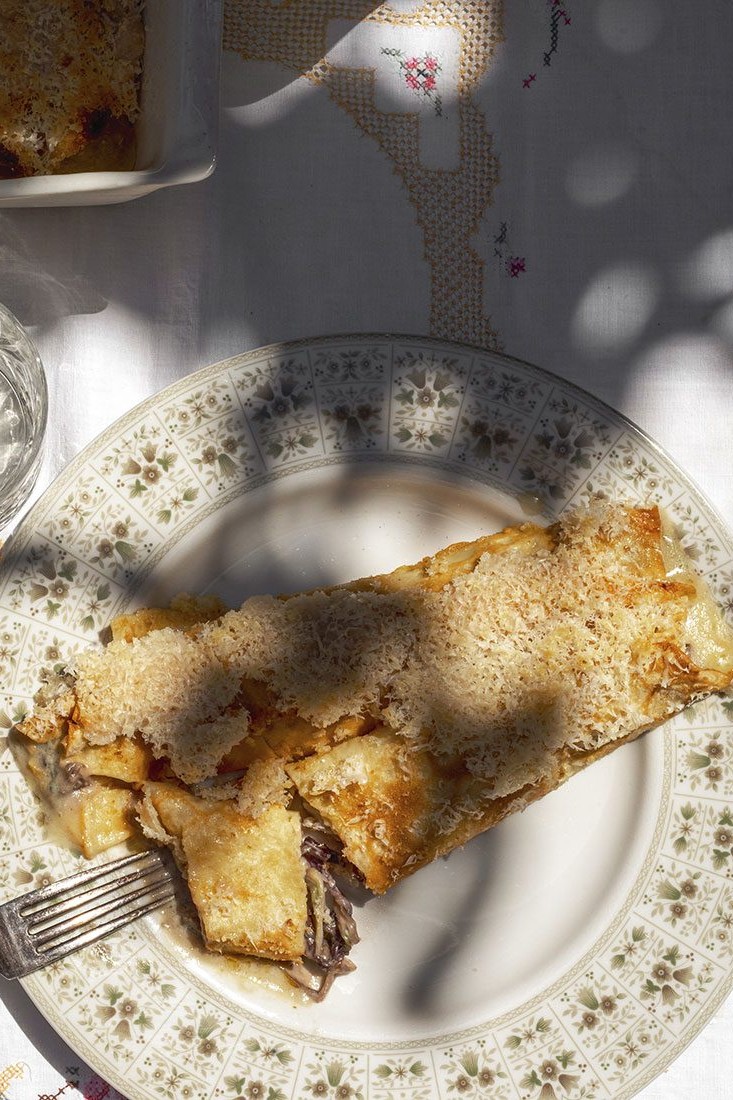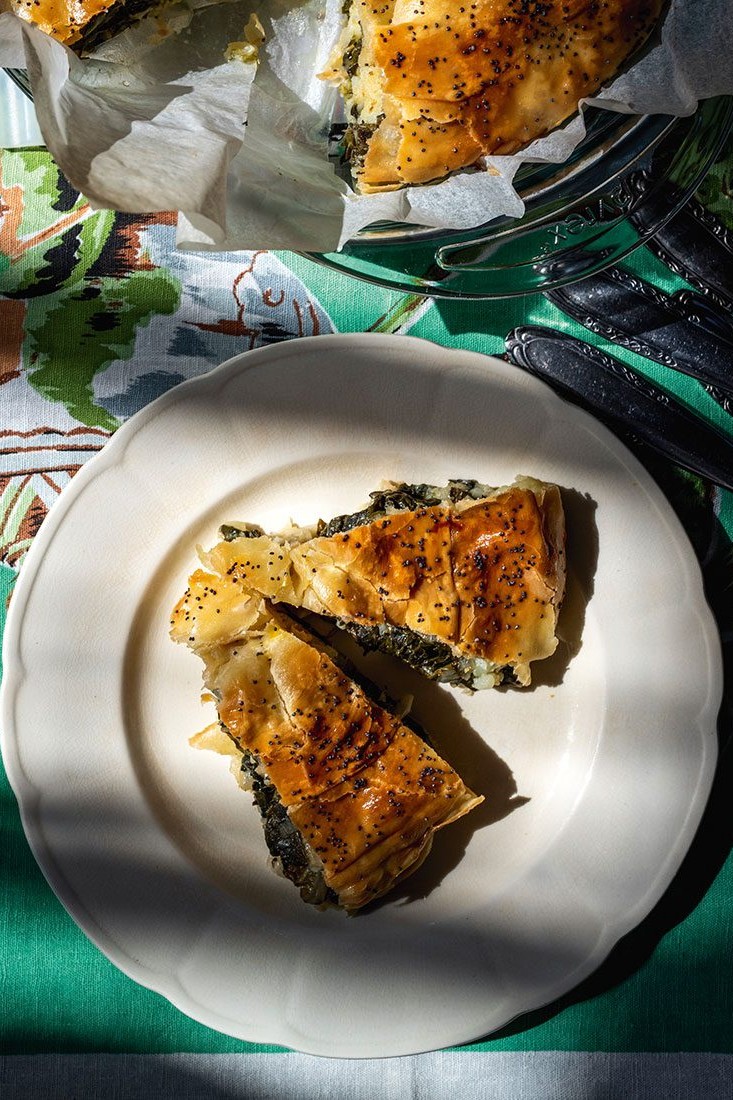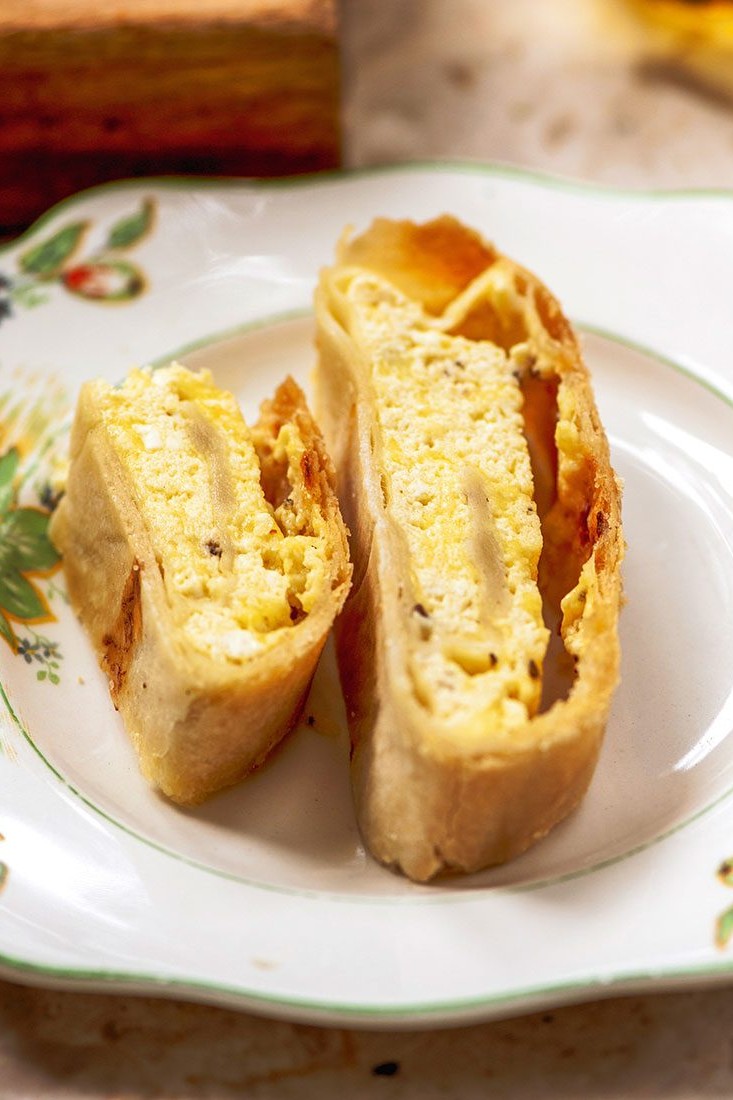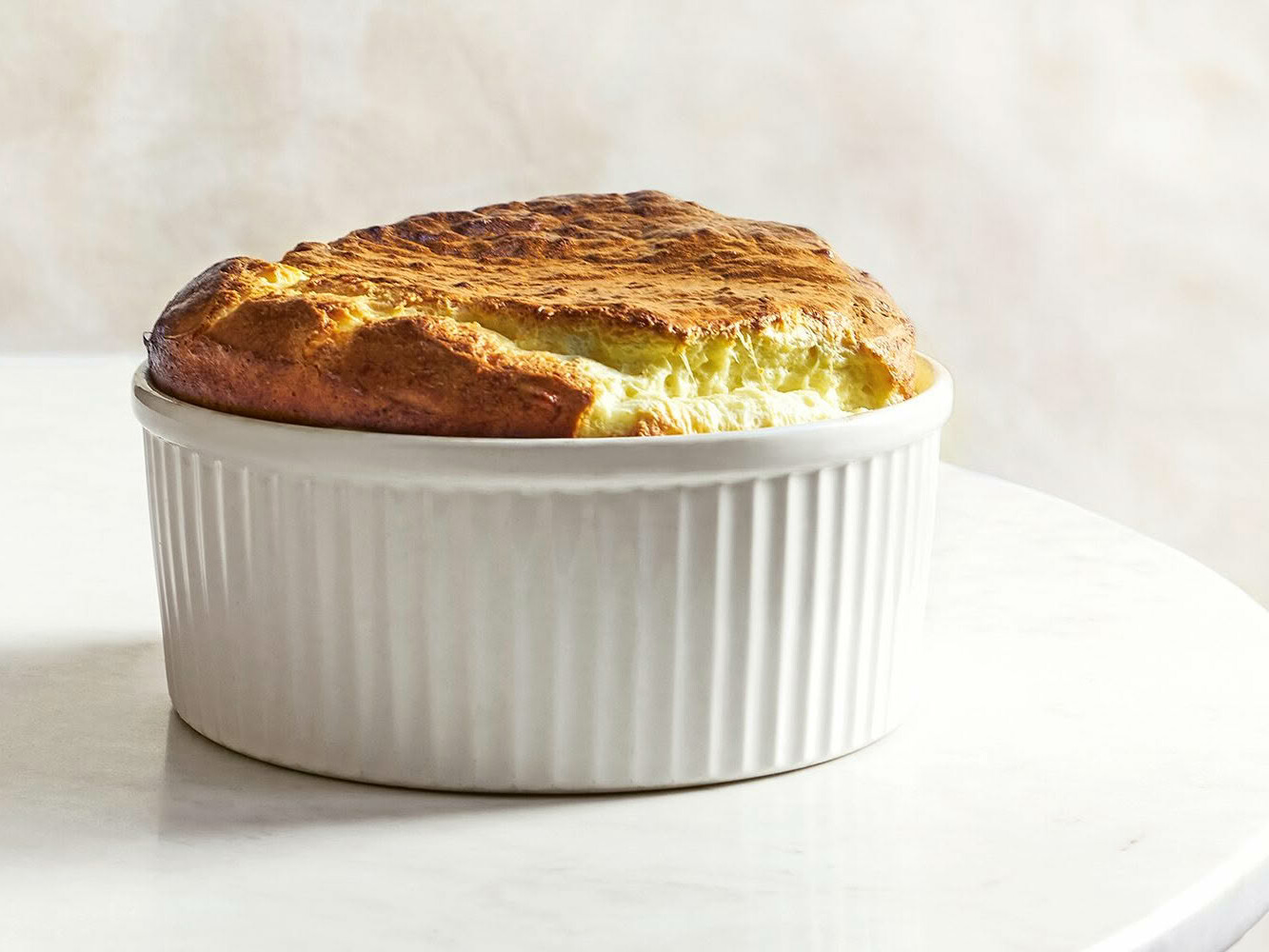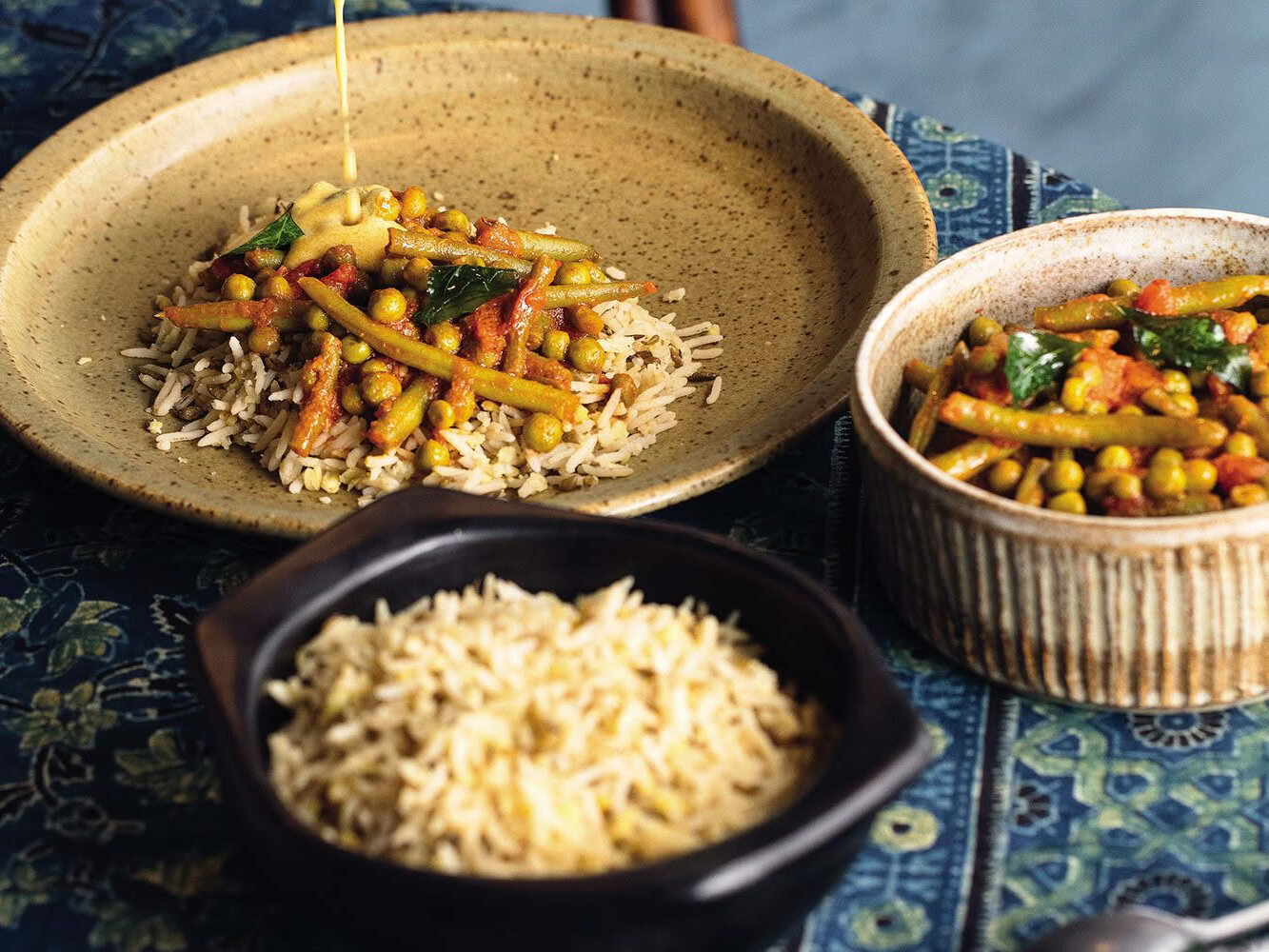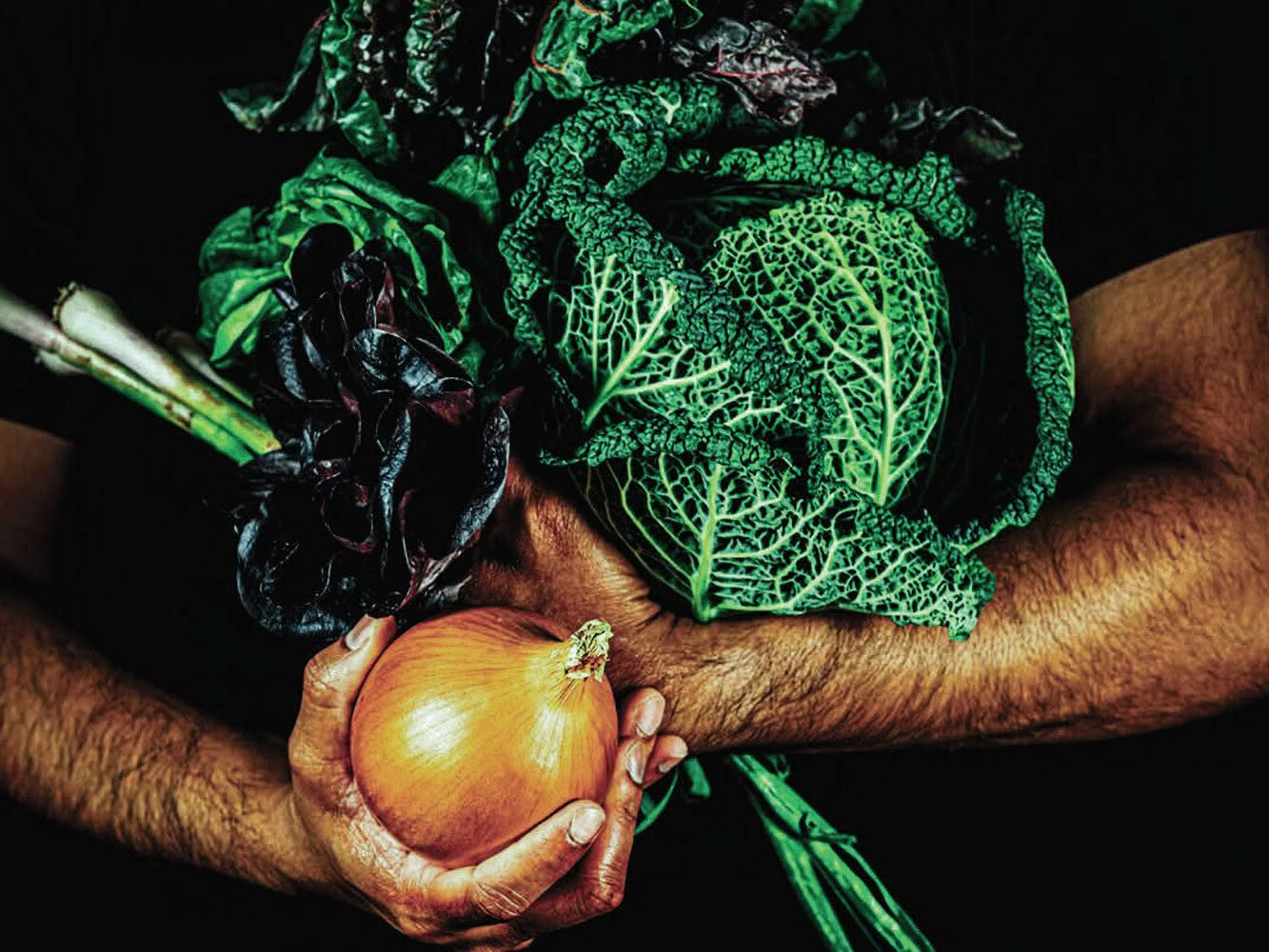In this extract from her book Istria, Paola Bacchia shares the food that links generations across borders.
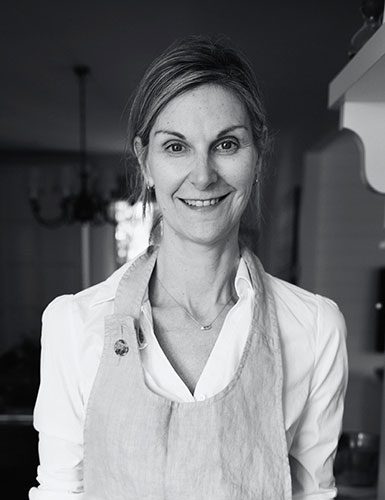
Istria is a promontory at the northern crux of the Adriatic Sea. It is placed like a keystone in the arch of folding hills and valleys where Italy, Slovenia, Austria and Croatia meet. It is all of those countries separately, and an entirely unique country combined. It is the country of my father and it is his lasting gift to me. Istria has Roman ruins, Hapsburg edifices and carved Venetian lions high on the façade of buildings of its west coast towns. For millennia, many cultures have flourished side by side. In this way, Istria’s story is my family’s story: my grandfather, Matteo, was born in Istria when it was Austria, lived in Istria when it was Italy, and left Istria when it was Yugoslavia. The town of his birth is now in Croatia.
In Istrian kitchens, Venetian seafood stews served with polenta sit side by side with hearty Hungarian-style goulash; ravioli with ricotta are effortlessly followed by Balkan flame-grilled meats on a skewer. All are accompanied by the salad greens and vegetables that grow in abundance on the peninsula, followed by desserts that you might find in a Viennese coffee shop, or in the cafés of Trieste.
Many dishes in this book are those of my childhood, of the vegetables and fruit that papà grew in his garden, what he or his istriani friends fished from Port Phillip Bay, the meats he bought from Alfredo the Italian butcher in Box Hill (the Melbourne suburb in which we first lived) – all of which mamma turned into the most delicious meals. Other recipes have been inspired by cookbooks of the area, mostly written in Italian, and many from the time when Istria, Fiume and the nearby islands were part of the Hapsburg Empire and Italy – ones I like to think my grandmother made for my grandfather as a young bride. Further recipes have been drawn from my many recent visits to Istria, time spent with friends and family who live there, and generous meals in konobe (the Croatian word for restaurants).
Food does not have borders. It speaks of the land and its people, of shared meals and cultures, of the past and the present, of family and community.

